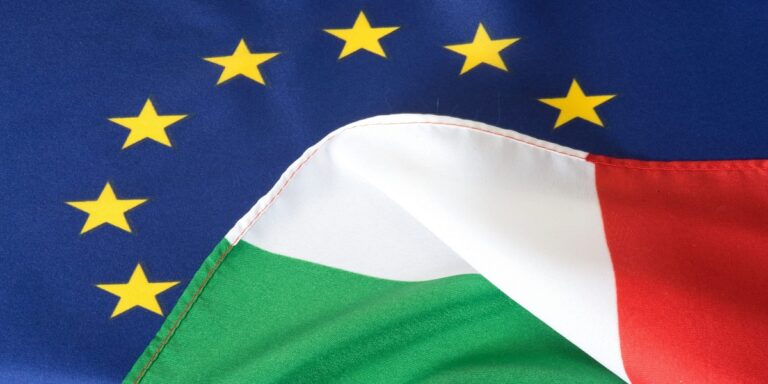On July 30, the Italian e-cigarette media outlet Sigmagazine reported that the Italian government plans to prohibit the online sale of nicotine-containing e-cigarette products. This measure, included in the legislative decree authorized by Economy Minister Giancarlo Giorgetti, aims to reform the e-cigarette market and is expected to be approved at the upcoming Council of Ministers meeting.
Background and Details
Context of the Ban
Initially scheduled for discussion at the previous Council of Ministers meeting, the ban on online sales of nicotine-containing e-cigarettes was not put to a vote. The proposal is now slated for approval at the next meeting on Tuesday, August 7. The Council of Ministers, mandated by Parliament, will establish new regulations to govern the online market for e-cigarettes and e-liquids.
Specifics of the Proposed Decree
Contrary to recent rumors, the draft decree submitted to the Council of Ministers specifies that the online sales ban will apply only to products containing nicotine. This includes disposable e-cigarettes, ready-to-use e-liquids, and nicotine bases. Other liquid products, such as flavorings, mix liquids, disposable e-liquids, and nicotine-free e-liquids, along with accessories, will remain freely available for sale. The former category will be restricted to tax warehouses, while the latter will be accessible to all consumers.
Scope of the Ban
The proposed ban differentiates between nicotine-containing products and nicotine-free alternatives, aiming to limit the accessibility of nicotine products while maintaining availability for non-nicotine options. This distinction is critical for consumers and retailers as it outlines what will and will not be available online once the decree is in effect.
Expected Implementation Timeline
Sigmagazine predicts that if the ban is approved by the Council of Ministers, the decree will take effect swiftly. The President of Italy will have fifteen days to sign the decree and approve its publication in the Official Gazette. Essentially, the regulation should become effective three to eighteen days after approval. This means that significant changes will impact the Italian e-cigarette market within a few weeks.
Reactions and Implications
Industry Response
The proposed ban has sparked significant discussion within the e-cigarette industry. Retailers and manufacturers are preparing for the shift in market dynamics, with some expressing concern over potential impacts on sales and consumer access to nicotine products. The distinction between nicotine-containing and nicotine-free products is a crucial factor in these preparations.
Public Health Perspective
From a public health perspective, the ban aims to reduce the accessibility of nicotine products, particularly to minors and individuals who may misuse them. By restricting online sales, the government seeks to control the distribution and consumption of nicotine-containing e-cigarettes, aligning with broader public health goals.
Consumer Impact
Consumers will experience notable changes in how they can purchase nicotine-containing e-cigarette products. Those accustomed to buying these products online will need to adjust to purchasing from physical stores or tax warehouses. The continued availability of nicotine-free products online offers some consolation, maintaining consumer choice for non-nicotine e-liquids and accessories.
Regulatory and Legal Considerations
The swift implementation timeline underscores the government’s commitment to this regulatory change. Legal considerations, including compliance and enforcement, will be critical to the decree’s success. Retailers and consumers alike will need to stay informed about the new regulations to ensure adherence and avoid penalties.
Conclusion
The Italian government’s proposed ban on the online sale of nicotine-containing e-cigarette products represents a significant regulatory shift. If approved, the decree will reshape the market landscape, emphasizing the distinction between nicotine and non-nicotine products and aiming to enhance public health protections. As the industry adapts, consumers will need to navigate these changes, balancing regulatory compliance with their purchasing preferences.
FAQs
What does the new regulation propose?
The regulation proposes a ban on the online sale of nicotine-containing e-cigarette products, including disposable e-cigarettes, ready-to-use e-liquids, and nicotine bases.
When is the ban expected to be approved?
The ban is anticipated to be approved at the next Council of Ministers meeting on August 7.
Which products are affected by the ban?
The ban affects nicotine-containing products. Non-nicotine products like flavorings, mix liquids, disposable e-liquids, and accessories will remain available for online sale.
How quickly will the regulation take effect?
If approved, the regulation is expected to take effect three to eighteen days after the President of Italy signs the decree and it is published in the Official Gazette.
Why is the ban being implemented?
The ban aims to reduce the accessibility of nicotine products, enhance public health protections, and regulate the online e-cigarette market more effectively.
What are the implications for consumers?
Consumers will need to purchase nicotine-containing e-cigarette products from physical stores or tax warehouses, while non-nicotine products will remain available online.


















